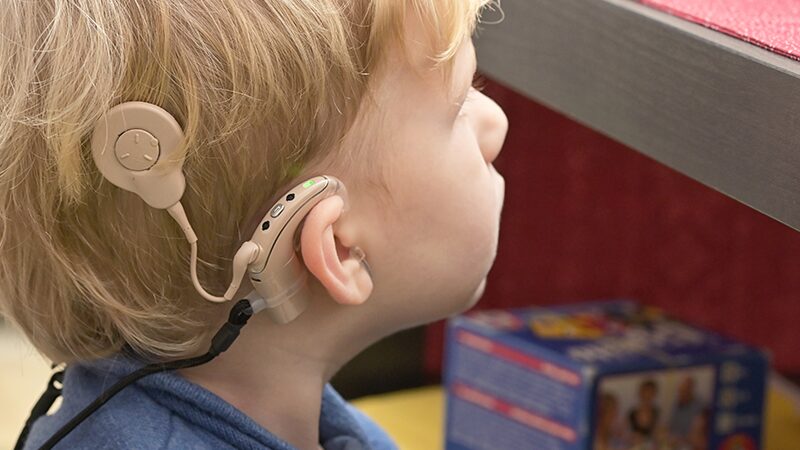Hearing aids and cochlear implants both help people with hearing loss to communicate better. While hearing aids do not require surgery, cochlear implants require surgery and are more suited for people with more severe hearing loss in one or both ears and poor speech understanding.
Unlike hearing aids, which increase the volume of sound and deliver it to the ear, cochlear implants bypass the outer ear structures and directly stimulate the nervous structures of the inner ear.

A cochlear implant is a small electronic device that helps people hear and more importantly understand speech.
There are many different types of cochlear implants. However, they are most often made up of several similar parts:
- An implant surgically placed under the skin (Electrode, receiver/stimulator)
- An external device worn on or near the ear (transmitter, speech processer)
Cochlear implants can be used on infants, children, and adults with moderate to profound sensorineural hearing loss. The minimal age of FDA approval for cochlear implants is 12 months, however devices have been safely implanted in infants as young as four months. There is no upper age limit to receive a cochlear implant and multiple patients over 100 years old have successfully undergone this surgery.

If you’d like more information, call (859-278-1114) to schedule your appointment with Dr. Mariel Osetinsky, our caring and compassionate ENT specialist at Kentucky Ear, Nose and Throat who specializes in cochlear implants. With 4 convenient locations, the ENT doctors, providers and audiologists provide comprehensive care for your family.



